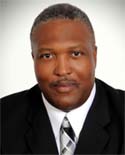Blacks Warn Against Menthol Cigarette Ban
By Jessie Lee, Executive Director
National Organization of Law Enforcement Executives

ALEXANDRIA, VA - A civilized society has to have a strong commitment to equal treatment in the administration of justice even when the topic might be unpopular. One of the roles of the National Organization of Black Law Enforcement Executives is to sensitize government officials and others to the problems of the black community and to have the courage of our convictions in addressing those issues.
Anyone working in law enforcement today knows that cigarette smuggling is a significant problem. Contraband tobacco markets run deep and wide - operating not only in the United States, but also around the world. What few people know, however, is that the U.S. government is considering a regulatory action that could cause this market to explode.
Today, the U.S. government is considering whether to ban menthol cigarettes, which constitute nearly one-third of the U.S. market. Any action to ban nearly one-third of the U.S. market of a product that is currently legal is something of concern to everyone in law enforcement.
A contraband market of illicit and unregulated cigarettes will be inevitable - and large - if the government bans menthol cigarettes. Illegal menthol cigarettes will find their way to consumers.
What are the real-world ramifications of such a market? A look at the recent history of illicit trade in cigarettes reveals a troubling picture. In Canada, studies have shown that the size of the contraband market there - caused by substantial tax increases - is so substantial that it represents half of all cigarettes smoking in some provinces. It's an amazing statistic. One of every two cigarettes sold in some areas are illegal.
But there's more. Tax hikes in states like New York State have led to a surge of black market sales there from low-tax states.
Federal studies, such as one by the Inspector General of the U.S. Department of Justice, note that organized criminal groups are running larger scale and more sophisticated diversion schemes. The Bureau of Alcohol, Tobacco, Firearms and Explosives describes the diversion of tobacco as "a global problem and believes illegal cigarettes are the number one black market commodity in the world."
We all know that cigarette smoking is dangerous and leads to disease. The question is whether a ban on menthol will undermine public health goals while also exerting a damaging real-world impact on law enforcement.
If menthol cigarettes are banned, contraband versions would effortlessly enter a sophisticated black market system that already exists. Like in Canada now, contraband cigarettes would be easily available on street corners or from car trunks.
The ramifications of a "black market" economy are obvious.
First, a black market does not ask young smokers for their ID. Nobody wants underage youths to smoke. But that attitude does not extend to those who sell smuggled cigarettes. Counterfeit and smuggled cigarettes would be sold on the streets and in neighborhoods, not at retail outlets where minimum purchase age laws are enforceable. And if unregulated sales to minors spike through street sales in African American communities, it would create a problem for law enforcement - potentially even leading to prosecutions, and to what end?
There are other consequences. A black market will not pay taxes. It is a matter of concern to everyone in law enforcement if the federal government on one hand requires additional enforcement resources by creating a black market, but then takes away revenues with the other hand. And this will be especially true if a contraband market, as history has shown, creates flourishing criminal enterprises.
As a national police organization, the National Organization of Black Law Enforcement Executives is concerned that illegal activity associated with banning menthol cigarettes could burden our law enforcement systems and divert needed resources from more pressing problems. Enforcement activities also could lead to severe inequities in law enforcement in African American communities.
In Washington, a scientific advisory committee of the U.S. Food and Drug Administration is considering the menthol issue. Its role is to issue a recommendation early next year about whether to regulate or ban menthol cigarettes.
It is a great concern that there is no apparent effort being made by the Food and Drug Administration to assess the practical impact of creating a contraband market by banning menthol cigarettes and what that means to the black community. The unintended consequences of a ban on menthol deserve serious consideration.
Jessie Lee is Executive Director of the National Organization of Black Law Enforcement Executives (NOBLE). NOBLE represents more than 3,500 top federal, state, county and municipal law enforcement officials.










